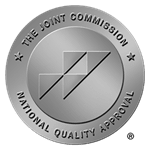The Connection Between the Soul and Work
An Early Memory
When I no more than 6 or 7 years old, I often played the role of witness to the family. As the youngest of 4 and the only boy, I saw a household of mysterious beings with different thoughts, feelings, rituals and attitudes. I remember sitting outside my oldest sister’s door one day. She talked the teenage talk of a high school student in the 1990’s. I listened intently to her conversation. As the curious, probably annoying, younger brother, I found the thoughts of others fascinating. What did they value beyond boysIIMen and crunchy hairstyles? Oh God! I’ll never forget the decade of hairspray fumes that dominated my home growing up!
The Role of Work in Our Lives
I open with this story because, as we look to the role of work in our lives I think it best to recognize the early characteristics that carry us onward. No vested interest begins without a seizure of connection. In my case, these memories remind me of the natural inquisitor and deep desire to cultivate understanding and validate the meaningful parts of my clients. We might even say that the values have always been there, beneath the surface, with the negative charges only activated when the positive counterparts lure us in. Why would so many doctors and nurses for example risk death on the front lines? We are drawn to our work.
The Threshold of Realization
Whyte writes, “ Looking at the biographies of many of those who have achieved something beyond the ordinary, we often find in each of those lives, some threshold of realization, some concentrated foundational insight they experienced, often quite young, that acted like prior announcements of the drama to come” (p. 54). All of us experience something when we are young and without obligations. It acts as an invitation. It beckons an uncertainty that emboldens us not only to the world but also to a surer sense of who we are. What evidence is there in your life that destiny comes in the form of work?
The Connection Between the Soul and Work
It is important to remember that work is first and foremost a relationship. In the wake of this epidemic, many of us suffer the looming shadow of the all-too-familiar fear that work too will abandon and fail us. Perhaps we have yet to draw the connections in a conscious way between the soul and work. Today presents the opportunity to draw out the eccentric uniqueness from which our soulful work emerges. Of course, many of us are fearful for good reason. The survivalist in all of us makes choices all together different than say the artist or the healer. Money is a worthy consideration. But rather than stuffing ourselves for fear of starvation, perhaps fulfillment best sustains the soul?
A Constant Visiting Dynamic
Work is not a separate experience from any other relationship. What patterns we have in one relationship likely exist in the others. If intimacy and connection are not present at work, chances are good it too remains a source of tension. Whyte writes, “There seems to be a constant visiting dynamic in all stages of life where it appears that we get only the girl, the guy, the work, the job, the sense of self, or a participation in wider creation that we actually feel we are worthy of. If we don’t feel we deserve it, then, like a spendthrift heiress, throwing her patrimony to the winds, we do our best to sabotage and give away what we feel we did not deserve in the first place” (p. 59).
Moving Toward Resonance with the Deeper Self
How can the soul be more central when it comes to financial fears and work-related questions? Love invariably comes with a hazardous risk to the life we intended. What is the opportunity in the search for employment? The beauty in our marriage to work is that we have to take a chance for the sake of virtue. We move toward what resonates with the deeper self, the soul is leading and the work is meaningful. Perhaps we can look with the eyes of passion toward our relationship with work. Whyte offers us a gentle consideration that our work, relationships, and eccentricity are interconnecting. I close with sound words for consideration this week:
We must make ourselves findable by being seen; to do that we must hazard ourselves and make ourselves available to the world we want to enter. Finding and being found is like a mutual falling in love. To have a possibility of happiness we must at the beginning fall in love at least a little with our work. We can choose a work on a mere strategic, financial basis, but then we should not expect profound future happiness as a result (P. 79).










